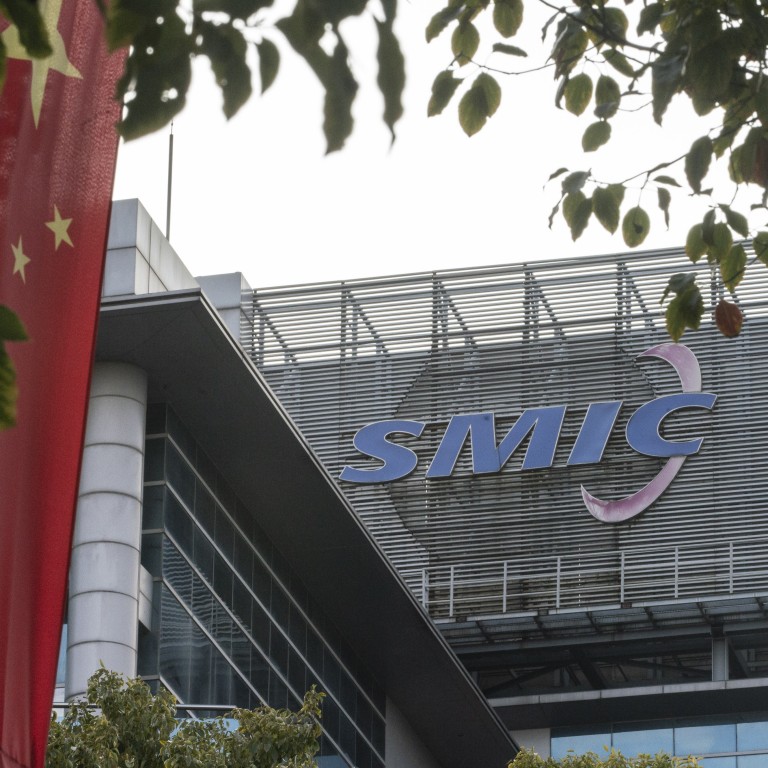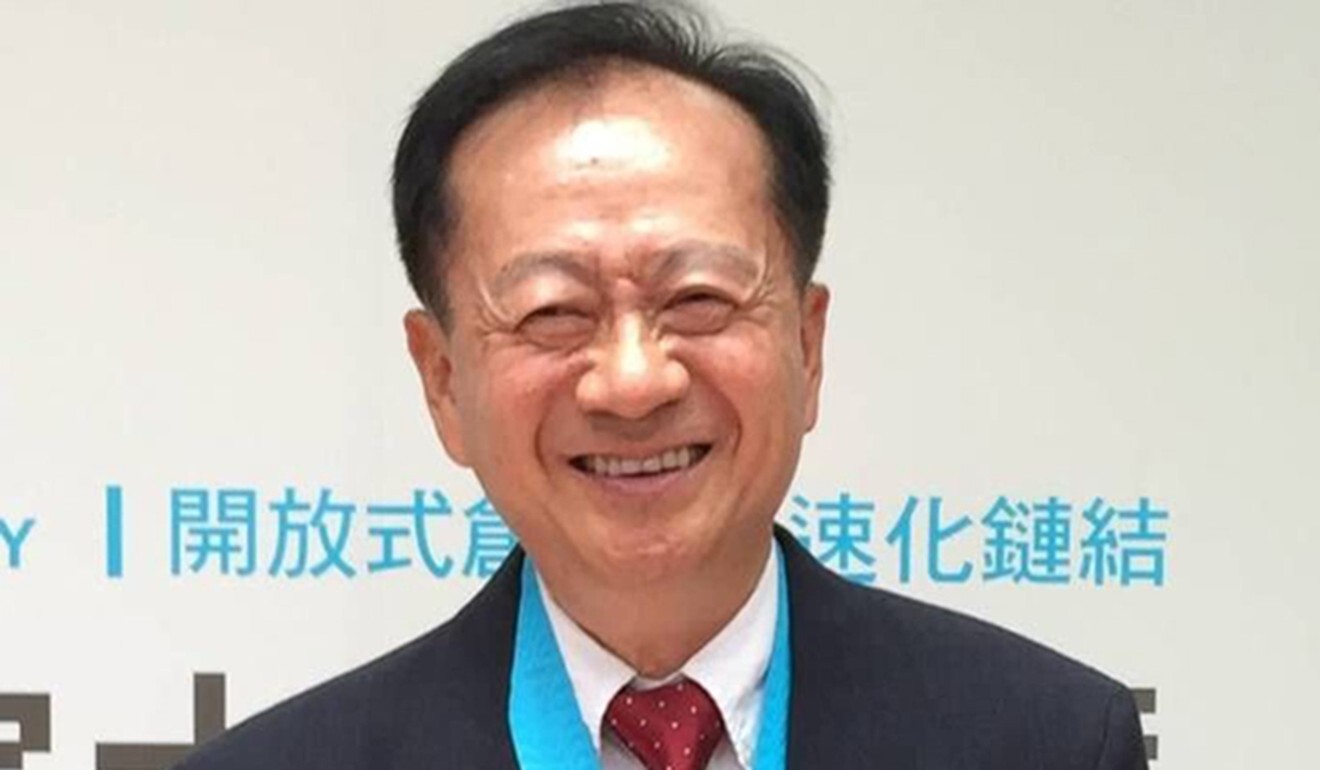
Chinese chip foundry SMIC sees no exodus of customers amid ongoing US restrictions, reports record-high revenue for 2020
- SMIC said it is negotiating with the Biden administration over US sanctions imposed on it by the Trump Administration, but declined to elaborate
- Despite posting record-high annual revenue, SMIC saw its share of wafer revenue for advanced nodes fall by large margin due to the loss of Huawei Technologies Co.
Semiconductor Manufacturing International Corporation (SMIC), China’s chipmaking champion, said on Friday that it has not seen an exodus of customers amid ongoing US restrictions imposed by former US President Donald Trump and that it was “working hard” with US suppliers to mitigate risks in its supply chain.
“The production capacity is tight around global foundries,” Zhao Haijun, co-CEO of SMIC, said on the company’s fourth-quarter earnings call. “Our customers, like us, can’t really change their suppliers right away.
“They continue to work with us to make plans for their new products,” Zhao said, adding that some clients expressed worries over the supply chain disruptions.
Despite a boardroom shake-up and US restrictions, SMIC, the flag-bearer of China’s chip-making industry, posted its second highest quarterly revenue on record, booking US$981.1 million for the quarter ended December 31 on brisk demand in consumer electronics boosted by the Covid-19 pandemic. That compared to US$839 million revenue in the same period a year ago. SMIC also reported record-high full-year results of US$3.91 billion.

The company said it expected “uncertainties” due to its addition to the US Commerce Department Entity List over its alleged ties to the Chinese military, a charge that SMIC has repeatedly denied. The US restrictions, which require the company to apply for licences to use American products and services, could push its capacity expansion plans to the end of the first half of 2021.
China enlists Huawei, SMIC to improve standards in its chip industry
The company said in its fourth-quarter financial report issued late Thursday that it planned to invest US$4.3 billion in 2021 to ramp up production capacity for mature nodes on its 8-inch and 12-inch lines. Zhao said the company needs US licences to buy tools and equipment needed for capacity expansion on the mature technology nodes.
He also said SMIC has been “in communication” with the new Biden Administration but declined to elaborate on how the negotiations are proceeding. Industry observers have mixed views on SMIC’s chances of getting the Biden Administration to revoke some of the bans imposed by Trump. Some are pessimistic about an easing of policies that restrict hi-tech exports under Biden because the focus of the China-US row has morphed from trade to technology.
SMIC reported that its share of wafer revenue from advanced 14-nm and 28-nm processing nodes fell by a large margin from the earlier July-September quarter due to the loss of a “big customer”. SMIC did not name the client but Huawei Technologies Co has been one of its biggest customers for a number of years, and all wafer foundries using US technology were prevented from selling chips to Huawei under US sanctions that kicked in from September last year.
SMIC’s share of wafer revenue from the smartphone product segment fell to 36.7 per cent in the fourth quarter from 43.1 per cent in the same quarter a year ago.

Zhao said SMIC will focus on development and utilisation of its 14-nm and 12nm (N+1) nodes in 2021 due to the US restrictions, adding that SMIC has started risk production on its N+1 process node. The US Commerce Department has said it will apply a “presumption of denial” for items uniquely required for production of semiconductors at the 10-nm and below node. The restriction will also hinder SMIC’s ability to import extreme ultraviolet (EUV) scanners sold by Dutch company ASML.
Eric Tseng, the chief executive of Taiwan based semiconductor analysis firm Isaiah Research, said it remains to be seen whether US approval for technology below 14-nm will be given to SMIC.
“There may be a greater chance to get approval for shipments for mature (28-nm and above) nodes,” he said.
However, if SMIC continues to pursue development of advanced nodes, a priority under China’s self-reliance drive in technology, it will face hiccups because of the US ban on EUV lithography machines and other equipment, according to a semiconductor analyst with China Merchants Bank, who requested anonymity.
SMIC said it had anticipated the current shortage of chips in the automotive sector and attributed the problem to lockdown measures imposed in Europe to contain the spread of Covid-19, which affected production at several European chip makers. The Chinese company said it has seen increased customer demand for car-related chips but noted that such products only represented a small share of its wafer production.
Liang Mong Song, the co-CEO of SMIC, who threatened to resign over the appointment of Chiang Shangyi as vice-chairman late last year, did not participate in the conference call, but he is still with the company, according to SMIC’s stock filings. Chiang, who worked with Liang when they both were at rival foundry TSMC a number of years ago, also did not participate in the earnings call.

